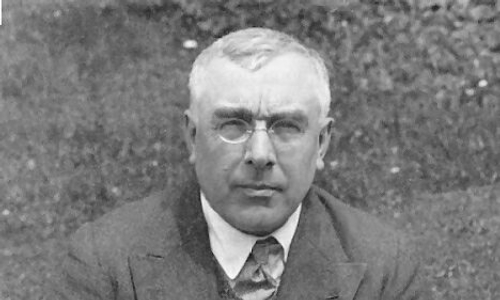Ouspensky
Osho on Ouspensky – Even a man like P.D. Ouspensky, who lived with Gurdjieff for years, could not hear the whole teaching as it was. When he wrote his famous book IN SEARCH OF THE MIRACULOUS and he showed it to George Gurdjieff, his Master, he said, “It is beautiful, but it needs a subtitle: FRAGMENTS OF AN UNKNOWN TEACHING.”
Ouspensky said, “But why? — why fragments?” He said, “Because these are only fragments. What I have told you you have not heard in its totality. And whatsoever you have written is beautiful….” Ouspensky was really one of the most skillful writers the world has ever known, very artistic, very logical, a superb artist with words. So he said, “You have written well, you have written beautifully, but these are only fragments — and the fragments cannot reveal the truth. On the contrary, they conceal it.
So call it: FRAGMENTS OF AN UNKNOWN TEACHING. The teaching still remains unknown. You just had a few glimpses here and there, and you have put all those glimpses together, you have somehow made a whole out of them, but it is not the truth, it is not the real teaching.” Ouspensky understood it. Hence the book still carries the subtitle: FRAGMENTS OF AN UNKNOWN TEACHING. What to say about ordinary people? Ouspensky cannot be called an ordinary person; extraordinarily intelligent he was. If fact, it was because of him that Gurdjieff became famous in the world; otherwise nobody may have heard about him.
Osho on Ouspensky – One of the great disciples of Gurdjieff, P. D. Ouspensky, was dying. The doctors told him to rest but he would not — instead he continued walking the whole night. They thought he had gone crazy. He was dying, his energy was disappearing — what was he doing? This was the time to rest; he would die sooner if he went on walking. But he would not stop. Somebody asked, ‘What are you doing?’ He said, ‘I would like to die alert, awake. I don’t want to die asleep — otherwise I will miss the beauty of death.’ And he died walking.
Osho on Ouspensky – When P.D.Ouspensky came to Gurdjieff he was a great scholar, already world famous — more known in the world than Gurdjieff himself. Gurdjieff was an unknown fakir in those days; he became known through Ouspensky. Ouspensky had written a great book before he met Gurdjieff. The book is really rare because he talks as if he knows, and he is such an articulate man that he can deceive.
The book is Tertium Organum — third canon of thought, and really one of the rarest books in the world. Even ignorance can sometimes do things; if you are skillful you can do things, even in your ignorance. Ouspensky claims in that book — and his claim is right — that there exist only three real books in the world: one is Aristotle’s Organum, the first canon of thought; second is Bacon’s Novum Organum, new canon of thought, that is the second canon of thought; and the third is his Tertium Organum, third canon of thought.
And really these three books are rare. All the three authors are ignorant, none of them knows anything about truth, but they are very articulate men. They really have done miracles: without knowing about truth they have written beautiful books. They have almost come around, approximately they have reached.
Ouspensky was a name; when he came to Gurdjieff, Gurdjieff was nobody. Of course he came with the knowledge that Gurdjieff was a man of being — a man of no knowledge really, but of very substantial being. What did he do? He did something beautiful: he remained silent.
Ouspensky waited and waited and waited, became fidgety, started perspiring before this man because he simply remained silent, looking at him, and it was so awkward, and his eyes were very very penetrating — if he wanted to he could BURN you with his eyes; and his face was such that, if he wanted to, he could simply shake you out of your being with his face. If he looked in you, you would feel very uneasy. He remained like a statue, and Ouspensky started trembling, a fever came over him. Then he asked, ‘But why are you silent? Why don’t you say something?’
Gurdjieff said, ‘First one thing has to be decided, decided absolutely; only then will I say even a single word. Go into the other room, you will find a piece of paper there; write on it whatsoever you know, and also that which you don’t know. Make two columns: one of your knowledge, one of your ignorance, because whatsoever you know I need not talk about. We are finished with it; you know it, there’s no need to talk of it. Whatsoever you don’t know, I will talk about.’
Ouspensky has reported that he went into that room, sat on a chair, took the paper and the pencil — and for the first time in his life realized that he didn’t know anything. This man destroyed his whole knowledge because, for the first time with awareness, he was going to write: I know God. How to write that? — because he didn’t know. How to write: I know truth?
Ouspensky was authentic. He came back after half an hour, gave a blank sheet to Gurdjieff and said, ‘Now you start work. I don’t know anything.’
Gurdjieff said, ‘How could you write Tertium Organum? You don’t know anything — and you have written the third canon of thought!’ It’s as if people go on writing in their sleep, go on writing in their dreams; as if they don’t know what they are doing, they don’t know what is happening through them.
